TOM MOTLEY of SVACE Visits MOCCA Arts Festival
We’re grateful to Tom Motley for covering the MOCCA Arts Festival 2018. As a cartoonist and longtime faculty member here at SVACE, he offered a unique perspective on the festival’s participants. Tom also documented last year’s festival; you can view his post and drawings at our former blog. Look for Tom’s upcoming summer courses here at SVACE and tune in to his updates at Blogspot, Twitter, and Instagram.
When I was a child in the 1960s and teen in the 1970s, pulling comics from spinner racks at drugstores, it was possible to keep up with every title coming out. Eventually, I could open any new comic to a random page and tell at a glance who penciled and who inked it. That was not the sign of a healthy medium.
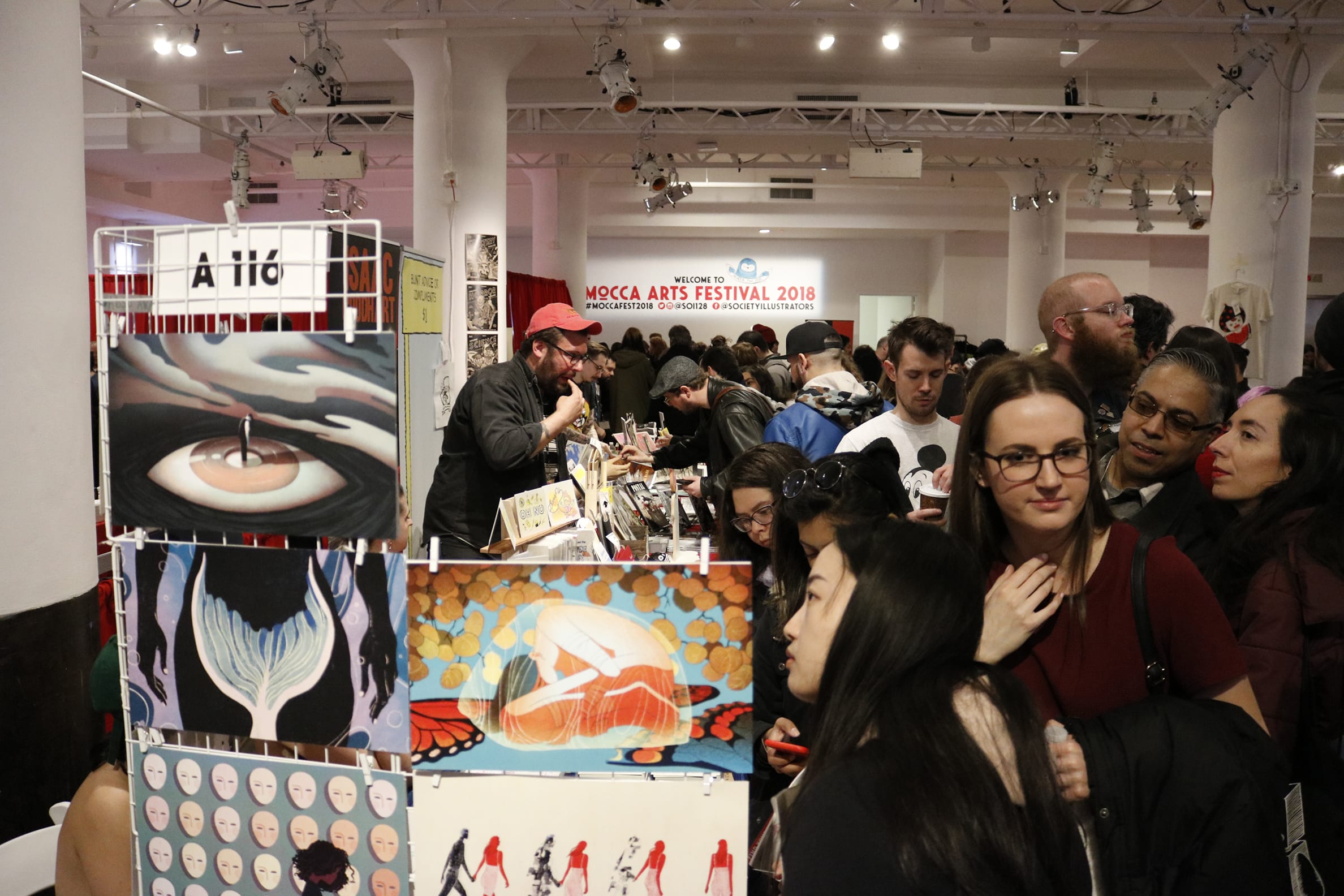
You know a medium is healthy when there’s more great work than anyone could possibly keep track of, which is the overwhelming realization that greets anyone who steps onto the exhibition floor of the MoCCA Arts Festival, the annual festival of the Museum of Comics and Cartoon Art division of the Society of Illustrators. MoCCA is the biggest of numerous NYC indie zine and comic festivals, holding a middle ground between Desert Island Comics’ curated Comic Arts Brooklyn and recent Funhouse Book Fair, and more diffuse events like Paper Jam and Pete’s Mini Zine Fest. The variety, quality, and sheer vastness of comic publishing here in the 21st century is a wonder to behold.
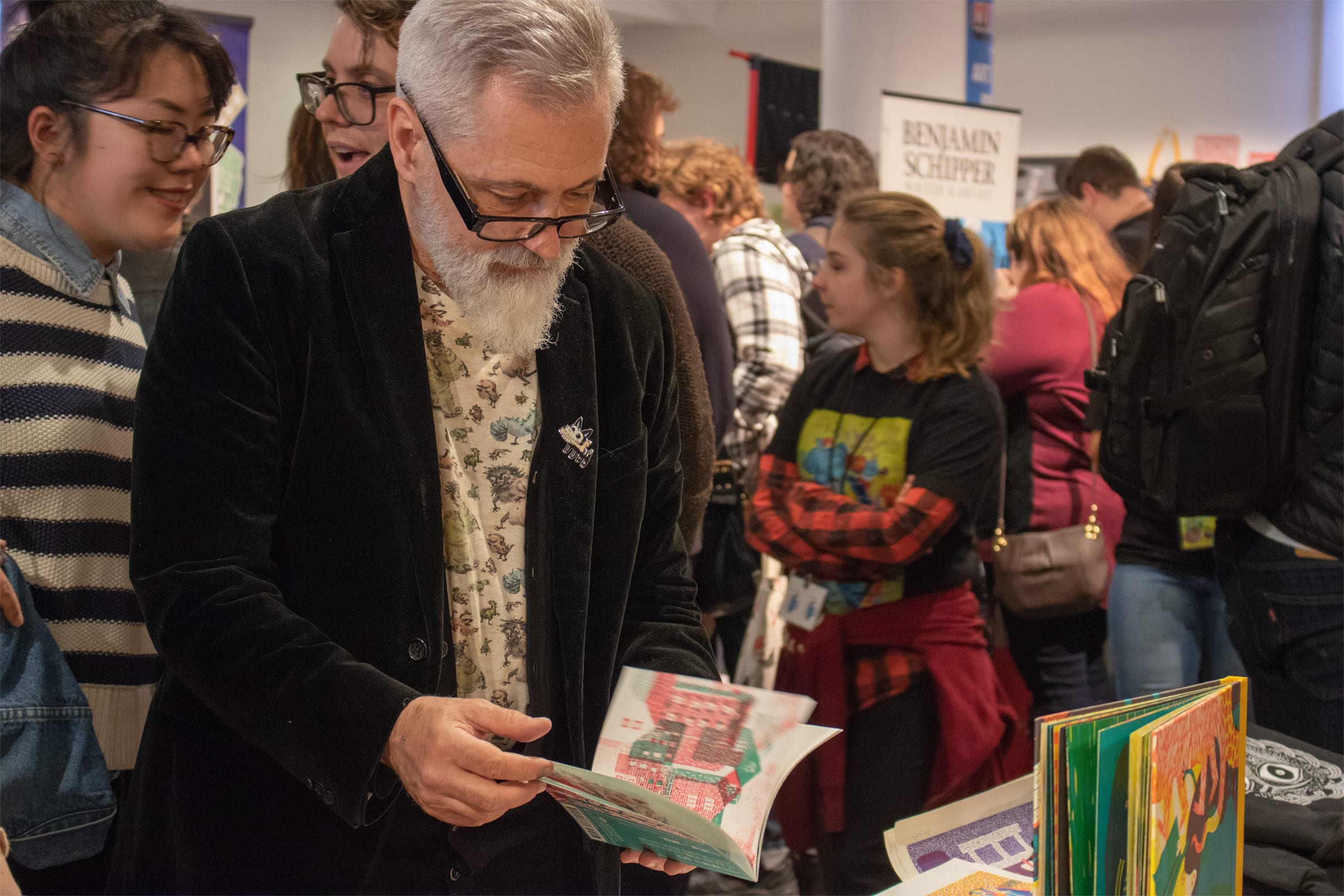
Illustrator Melanie Reim, Associate Dean for the School of Art and Design at FIT and member of the SOI board, felt that this year’s event was “bigger and better than it’s ever been. There are more schools and more entrepreneur artists tabling than ever. It’s very exciting.”
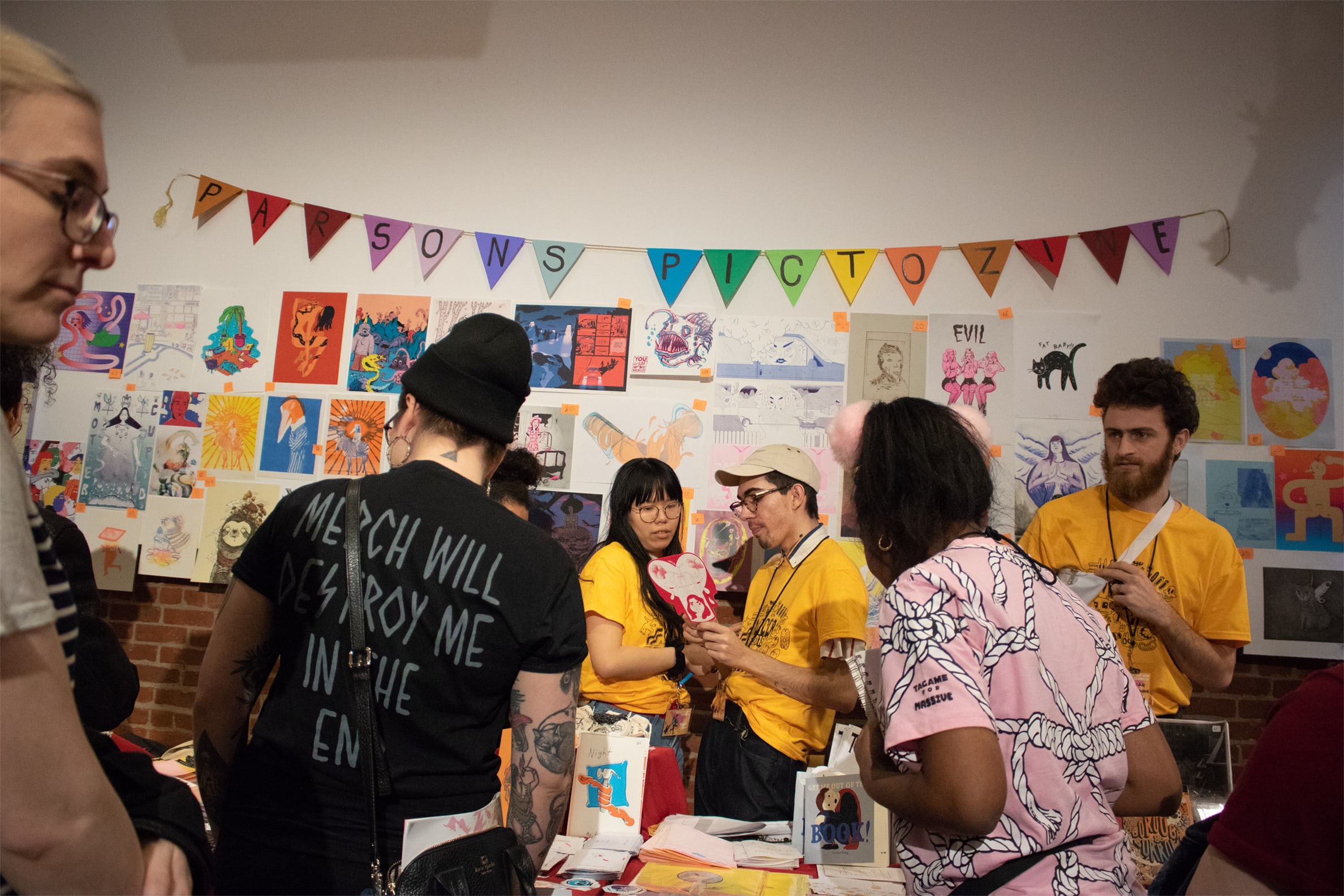
That it’s a great place to discover comics and cartoon merchandise makes it also a great place to be a cartoonist offering work. Dingding Hu, selling her “Hu is Hungry” food themed pins, cards, and stickers, appreciates the range of the audience MoCCA draws compared to other festivals. “They’re interested in everything. Almost every item sold.” Patrick Sinnott, SVA BFA 2012, was abeam over the robust sales of his comics and prints. “I left the house with no cash and haven’t had to ask for change once.” Bill Roundy, another former student of mine and one of MoCCA’s organizers in its early years, told me MoCCA is his favorite of the four or five festivals he tables every year. Bill does the comic Bar Scrawl for Brooklyn Paper. This year, he offered original sketches of monsters drinking cocktails-- which monster and cocktail TBD by casting dice.
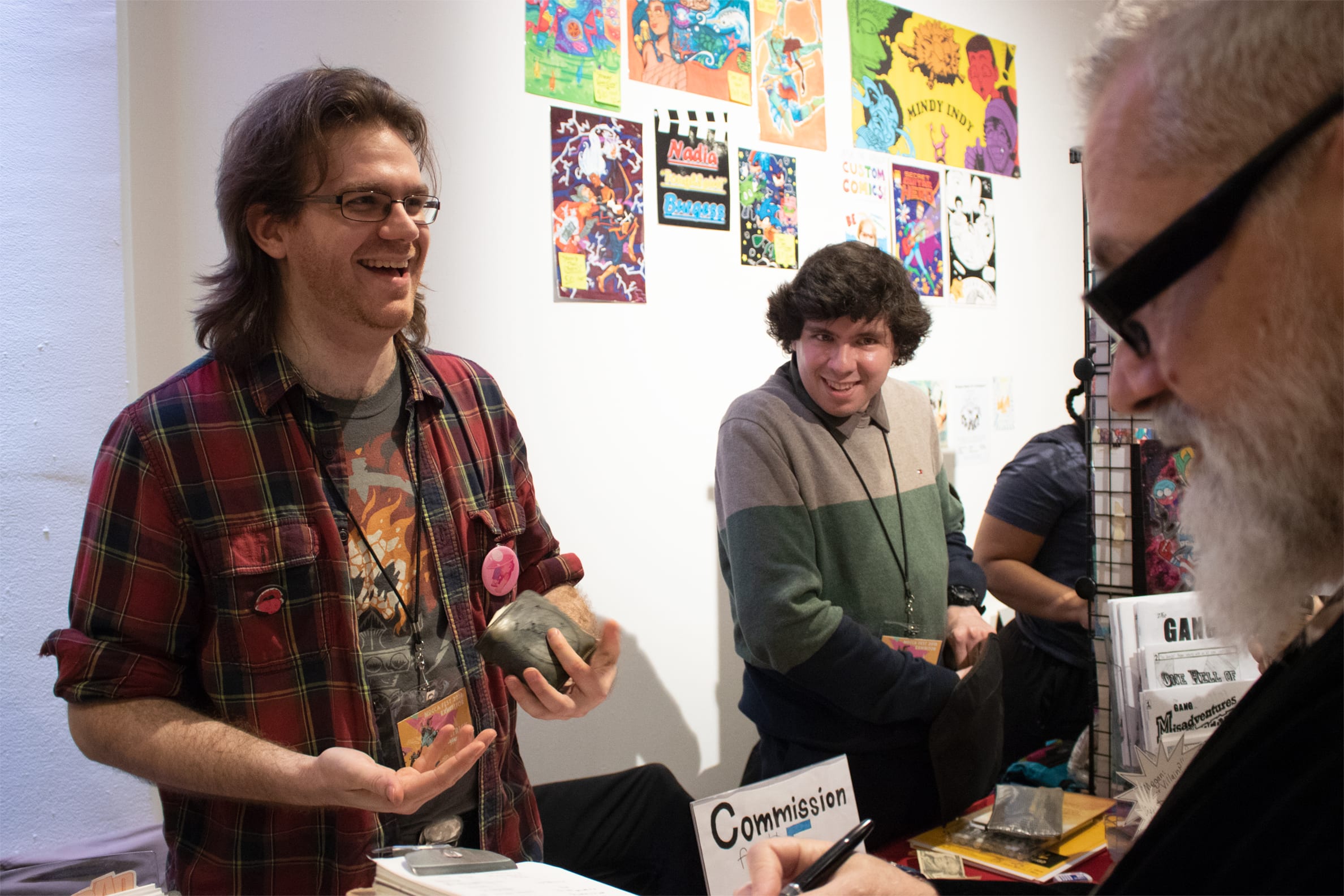
It feels appropriate that MoCCA has come under the stewardship of the Society of Illustrators, as the lines between comics, illustration, and fine art become ever more permeable, with so many artists moving seamlessly between markets.
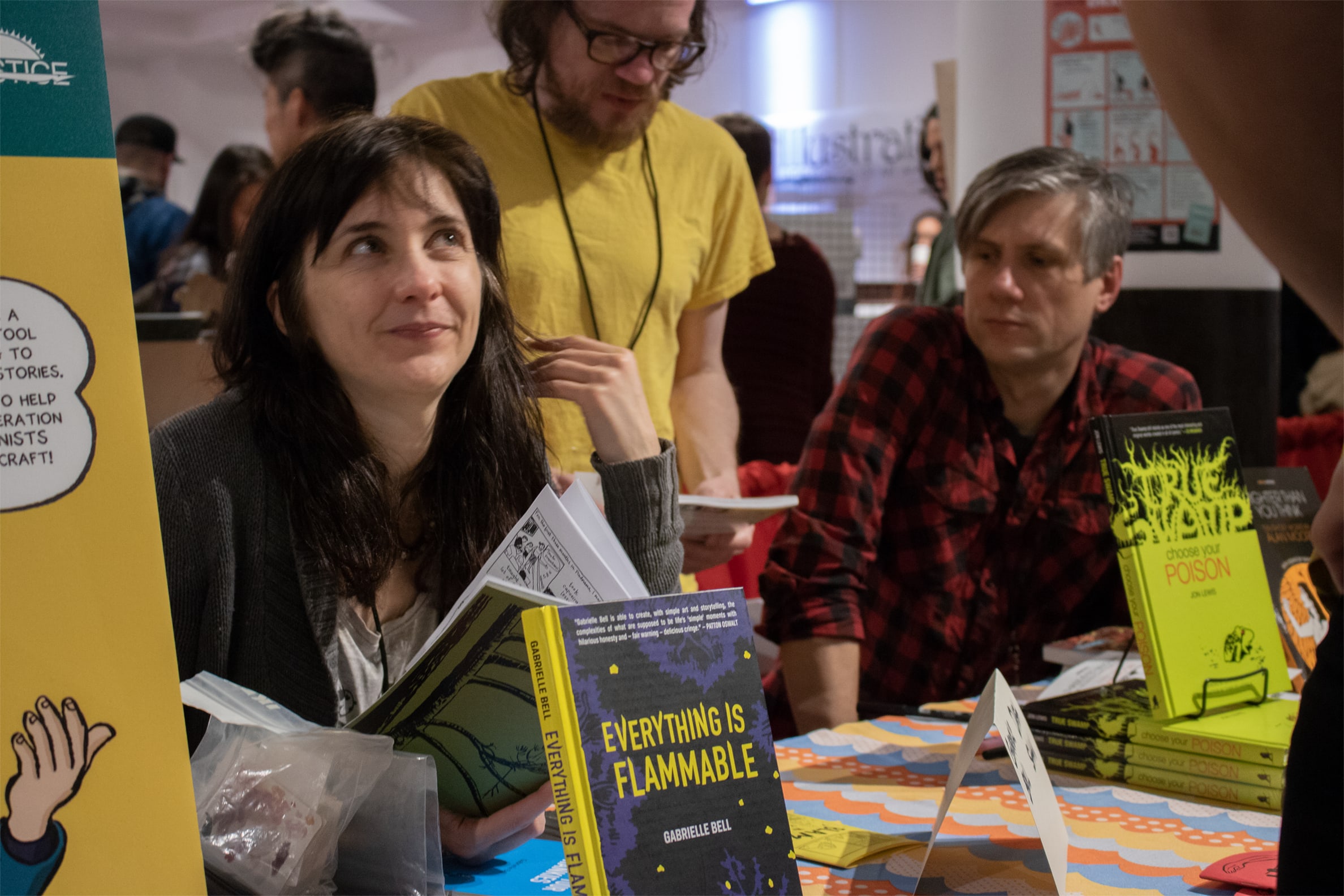
Said Francoise Mouly of Toon Books, “Comics’ visual narrative is multi-modal. It contains elements that don’t have to be explained. Representation in comics can be literal, metaphorical, or both.” She was speaking of the importance of comics in teaching children to read, during a conversation with First Second’s Mark Siegel. “Learning to read is not intuitive.” On the general public’s acceptance of the medium, Siegel offered, “Speaking to librarians all over America, I feel the battle is won, though some people need to catch up to that fact.”
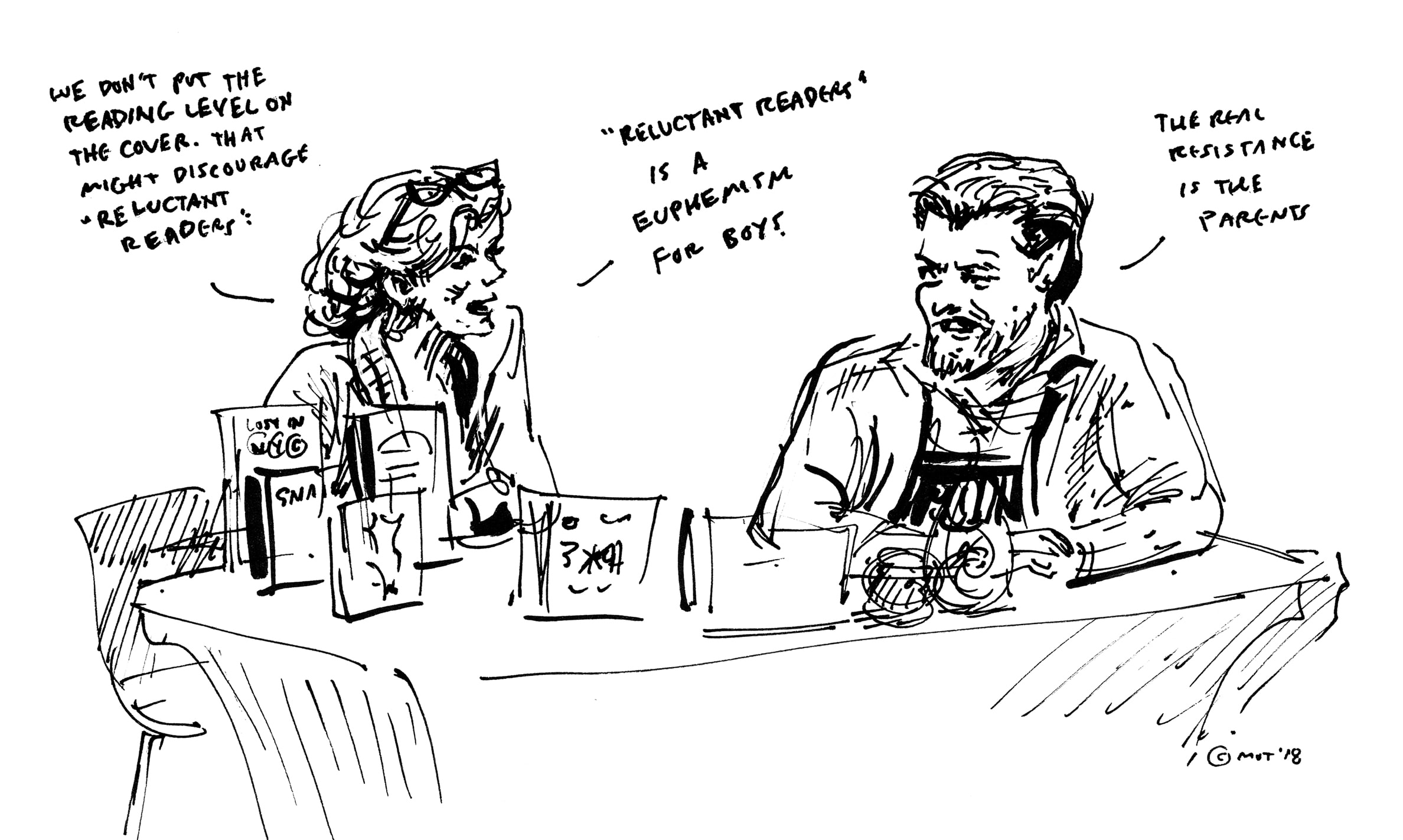
Learning to make comics is itself a much bigger challenge than an outsider might guess. It’s common knowledge that SVA is at the center of comics instruction in the world. Many, many of the people I encountered on either sides of the tables have either studied or taught there, as is true of top cartoonists in the medium’s history. But other schools have been in the game all along, too, and are still cranking out amazing talent: the High School of Art and Design, Pratt Institute, Parsons, RISD, and more great programs have sprung up: FIT, CCS, MICA, … At last even my alma mater, Washington University in St. Louis, is starting an MFA in Illustration Visual Culture in 2019, helmed by John Hendrix, an SVA alum (naturally).
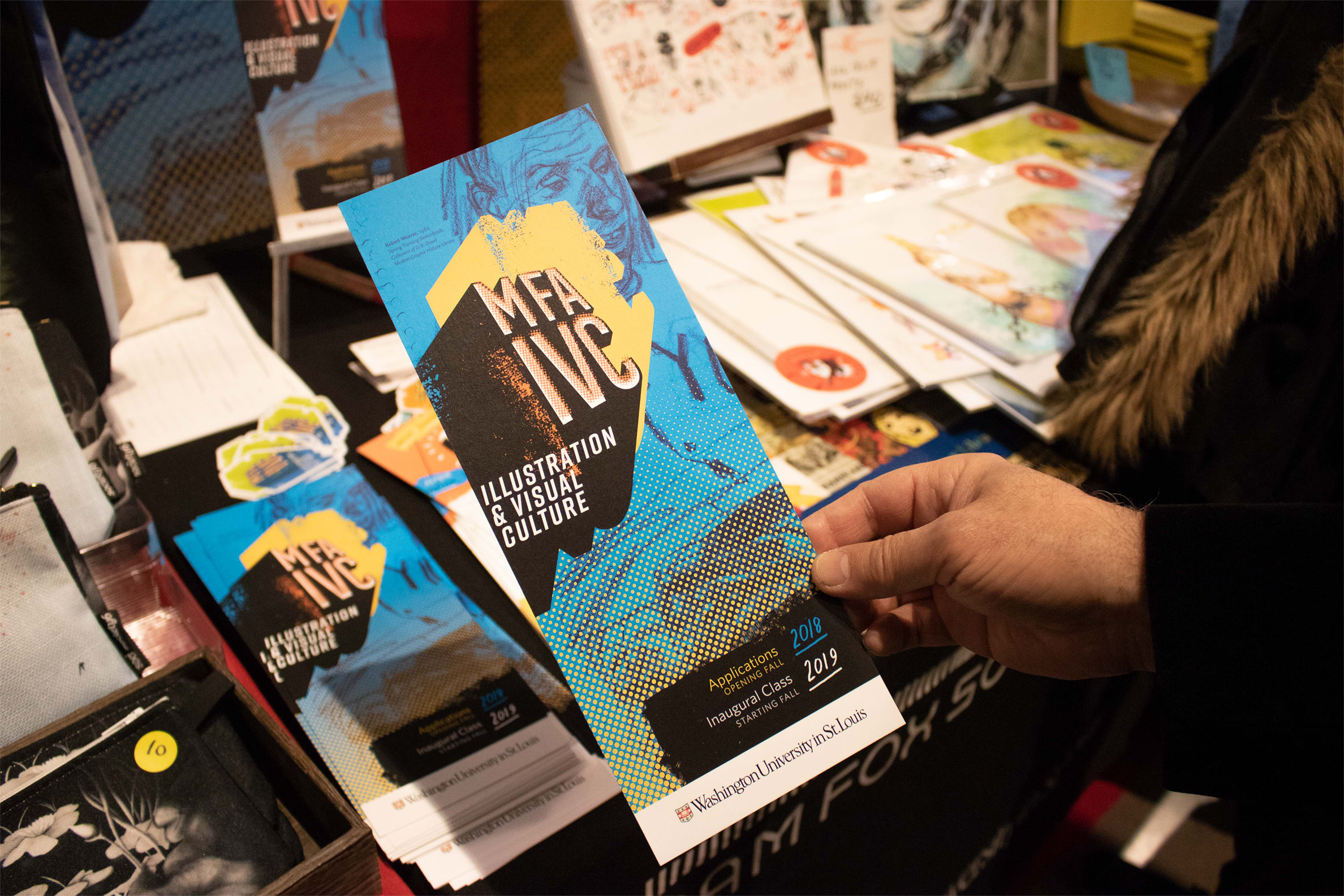
The Saturday night after party provided a means of speaking with out of towners and influencers. I was able to check in with colleagues like J.J. Sedelmaier from White Plains, Chris Butzer from Hawaii, & Kate Lacour from New Orleans. Glynnis Fawkes, down from Vermont, seemed relieved not to win another Award of Excellence at the ceremony this year, having cleaned up the previous two years in a row. And I finally got to meet longtime zine publisher, Aaron Cometbus, who’s conducted insightful interviews with top cartoonists.
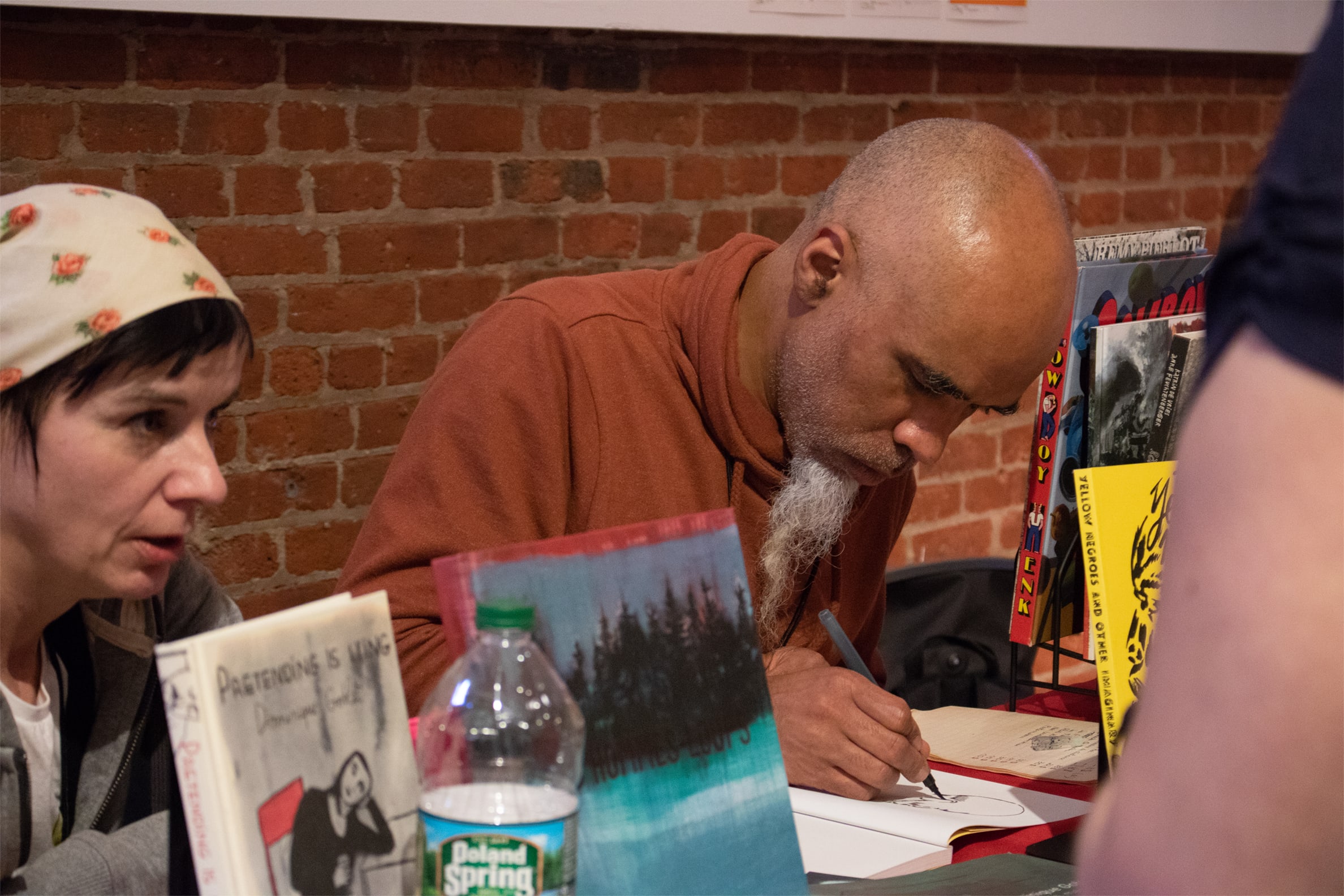
MoCCA had much to offer beyond networking, shopping, and discovering talent: an SVA Riso lab, a Wacom Lounge, Hellboy life drawing, exhibits of original artwork by Guests of Honor, Liniers and Nate Powell, a food court with sandwiches, pretzels and whatnot, and twice as much programming as any one person could take in. I enjoyed listening to Jaime Hernandez, Dominique Goblet and Yvan Alagbe, Paul Karasik and crew, all while regretting missing Mike Mignola, Roz Chast, Steve Brodner, and yikes, so many more!
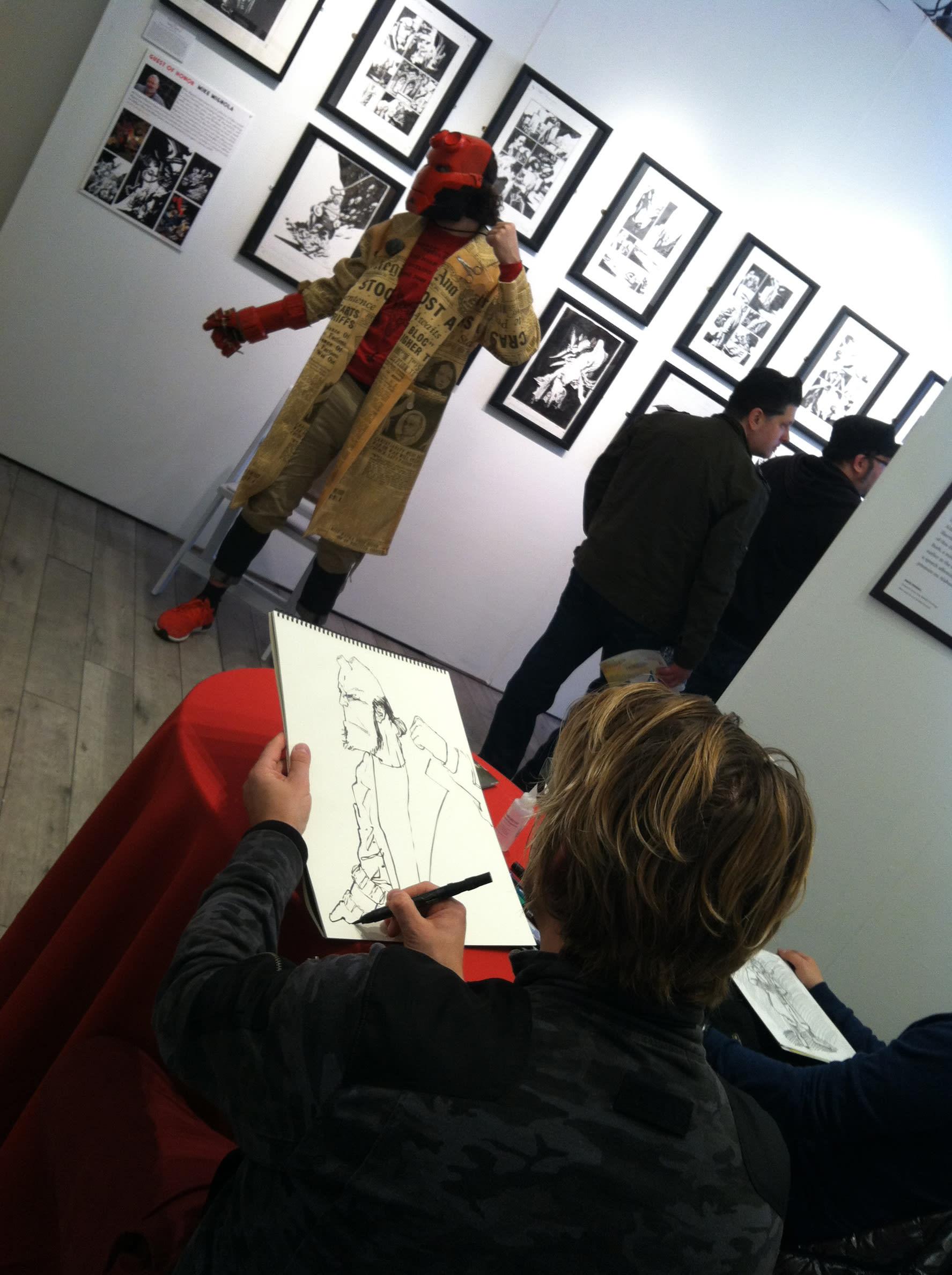
Love and Rockets creator, Jaime Hernandez, sees a bright future ahead. “Somewhere a group of artists is sharing a house and making the next new type of comics. The great thing is they won’t be doing them the way they’re supposed to. They’ll do them the way they think they should be done.”
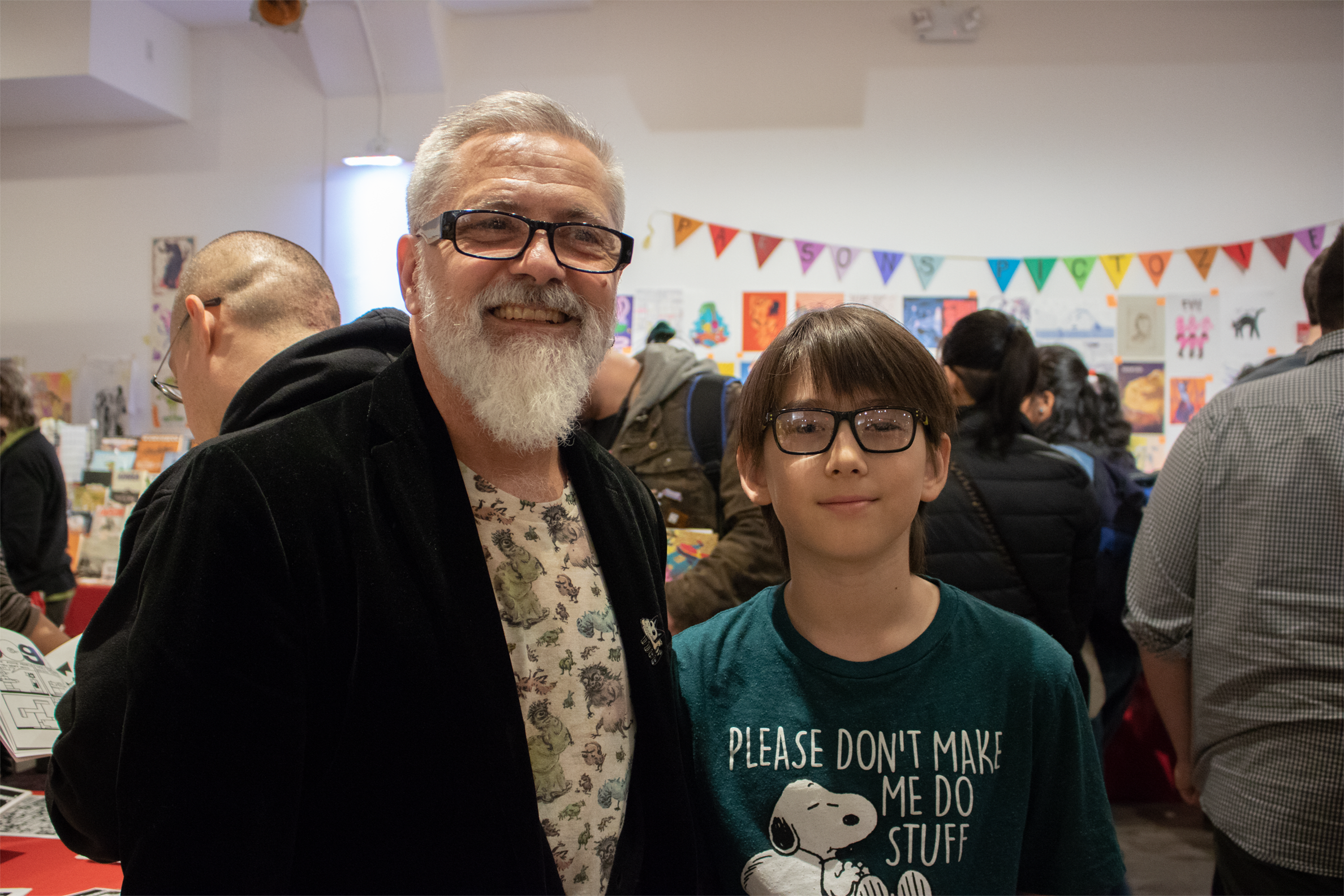
Nathan Fox, chair of SVA’s Visual Narrative MFA, summed up the comics medium and the MoCCA experience: “Comics is hard but an addiction. It’s worth all the blood, sweat, tears, nails, bricks, & stale pretzels.” As ever, the MoCCA Festival is not to be missed.
See more updates and stories on our Facebook, Twitter, LinkedIn, and Instagram pages!

